MIRANDA RIGHTS Origins & Influence Herman Y. Derbushev

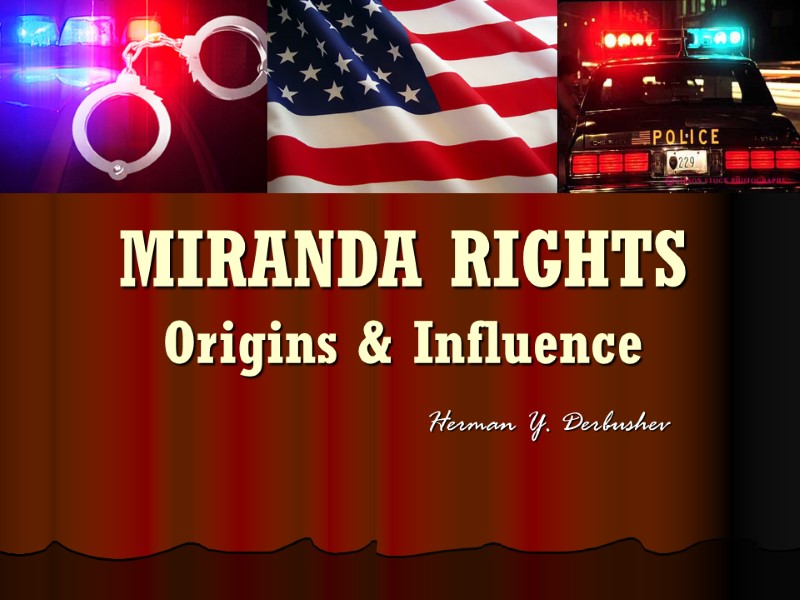
MIRANDA RIGHTS Origins & Influence Herman Y. Derbushev
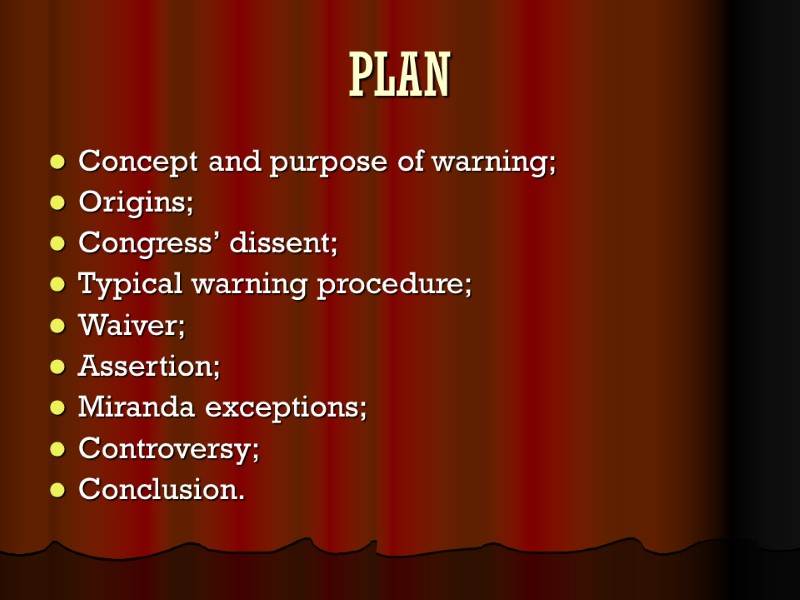
PLAN Concept and purpose of warning; Origins; Congress’ dissent; Typical warning procedure; Waiver; Assertion; Miranda exceptions; Controversy; Conclusion.
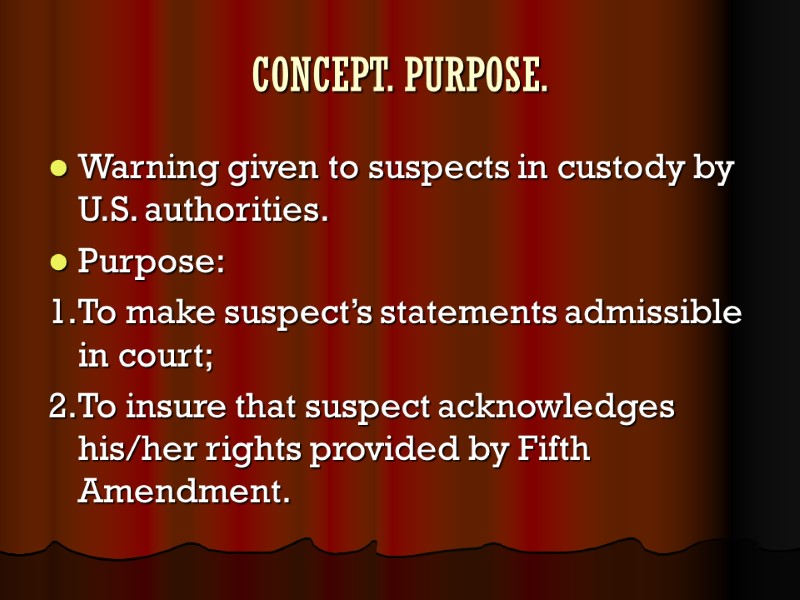
CONCEPT. PURPOSE. Warning given to suspects in custody by U.S. authorities. Purpose: 1.To make suspect’s statements admissible in court; 2.To insure that suspect acknowledges his/her rights provided by Fifth Amendment.
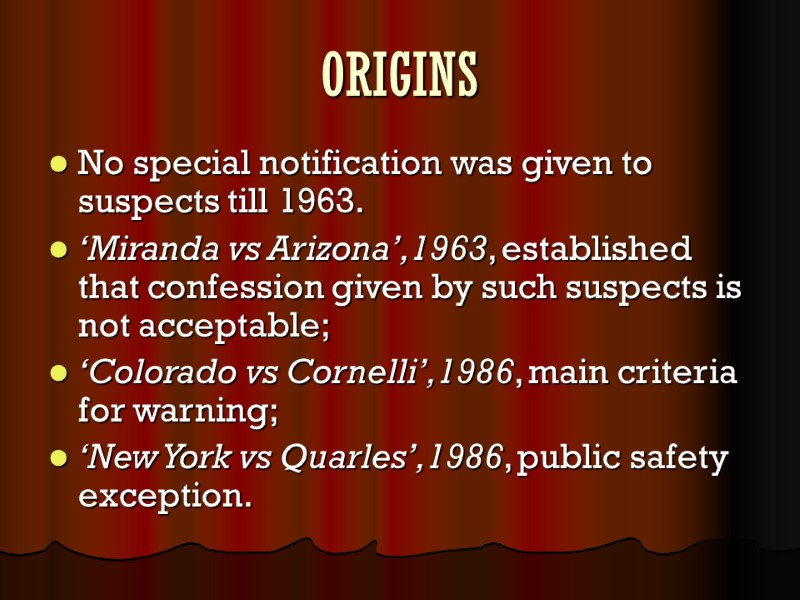
ORIGINS No special notification was given to suspects till 1963. ‘Miranda vs Arizona’,1963, established that confession given by such suspects is not acceptable; ‘Colorado vs Cornelli’,1986, main criteria for warning; ‘New York vs Quarles’,1986, public safety exception.
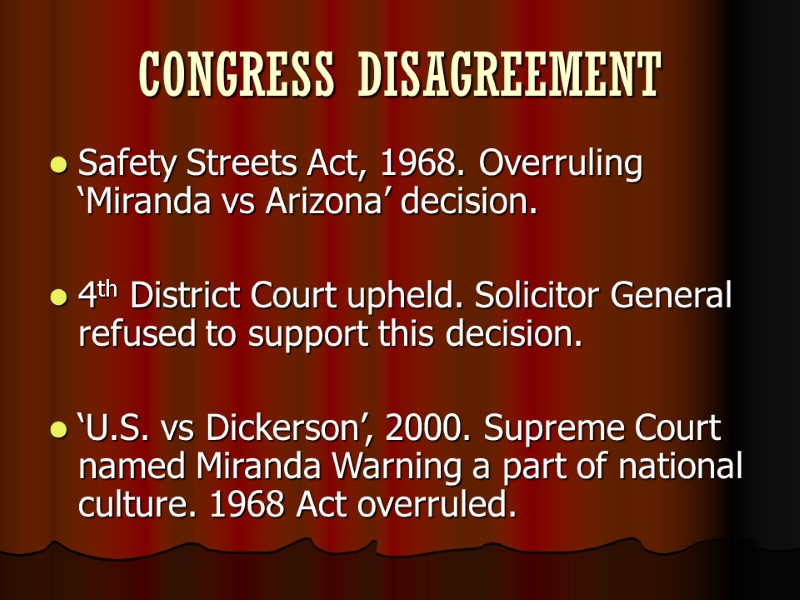
CONGRESS DISAGREEMENT Safety Streets Act, 1968. Overruling ‘Miranda vs Arizona’ decision. 4th District Court upheld. Solicitor General refused to support this decision. ‘U.S. vs Dickerson’, 2000. Supreme Court named Miranda Warning a part of national culture. 1968 Act overruled.
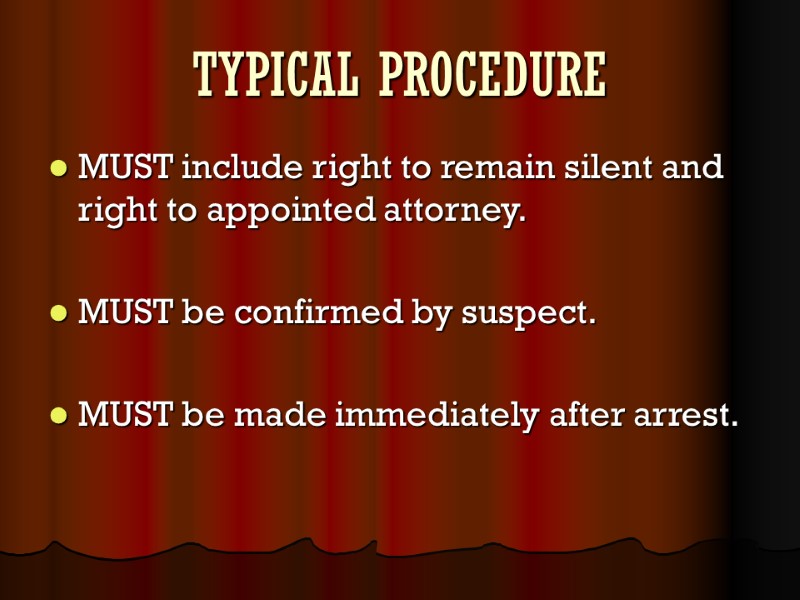
TYPICAL PROCEDURE MUST include right to remain silent and right to appointed attorney. MUST be confirmed by suspect. MUST be made immediately after arrest.
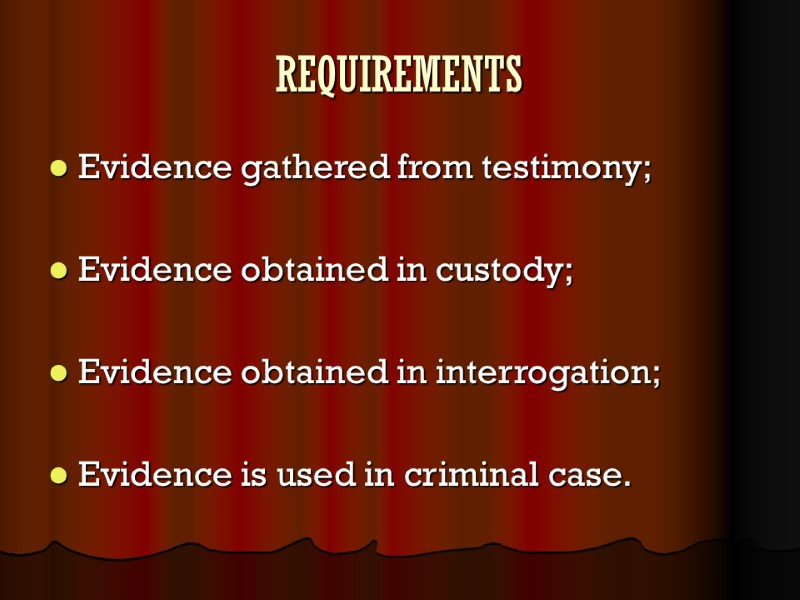
REQUIREMENTS Evidence gathered from testimony; Evidence obtained in custody; Evidence obtained in interrogation; Evidence is used in criminal case.
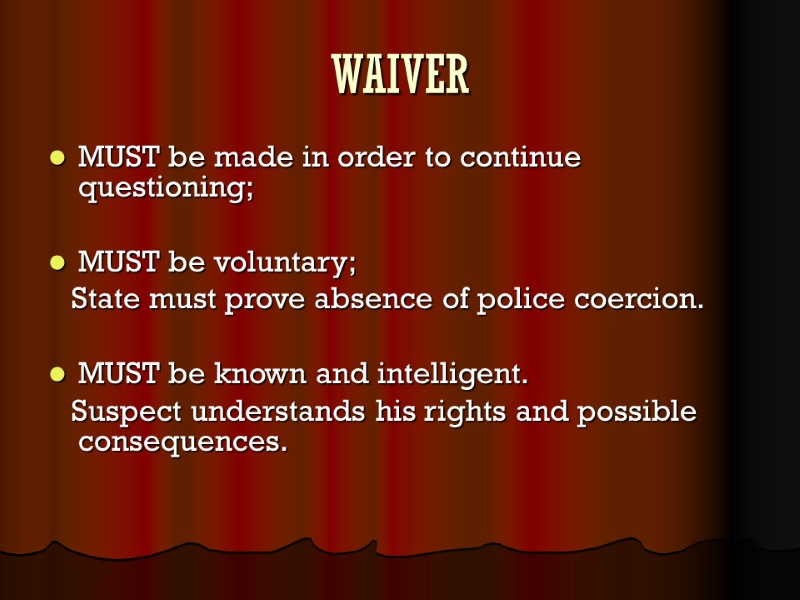
WAIVER MUST be made in order to continue questioning; MUST be voluntary; State must prove absence of police coercion. MUST be known and intelligent. Suspect understands his rights and possible consequences.
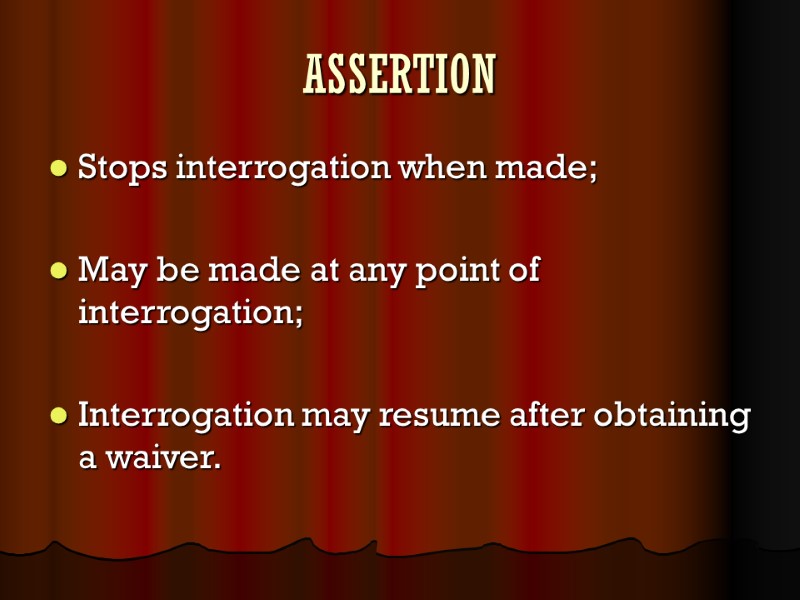
ASSERTION Stops interrogation when made; May be made at any point of interrogation; Interrogation may resume after obtaining a waiver.
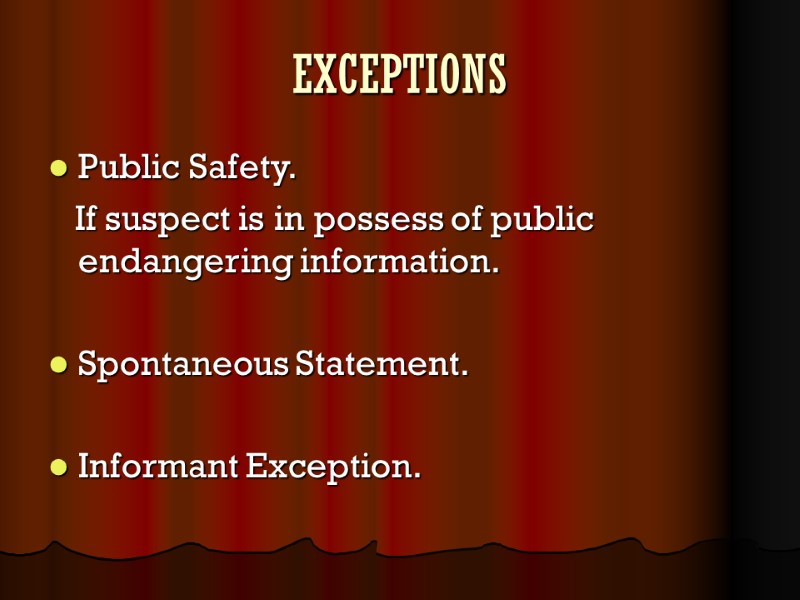
EXCEPTIONS Public Safety. If suspect is in possess of public endangering information. Spontaneous Statement. Informant Exception.
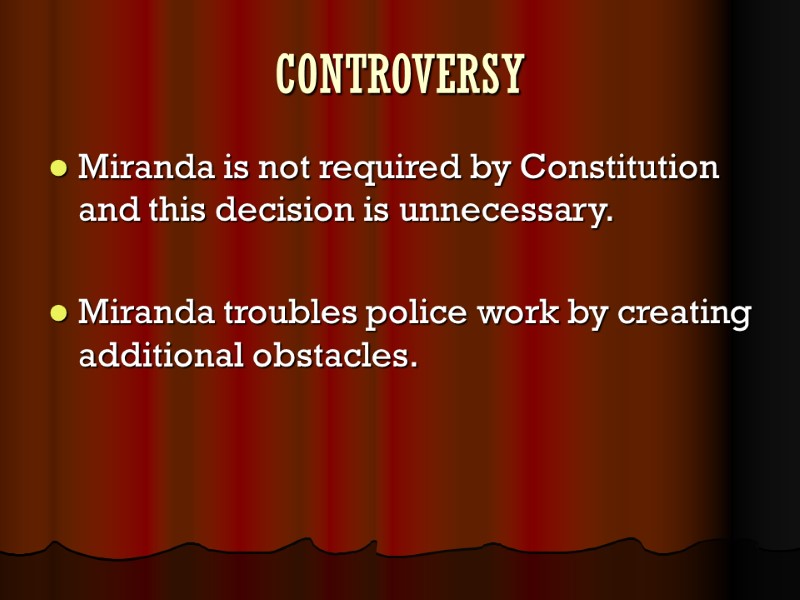
CONTROVERSY Miranda is not required by Constitution and this decision is unnecessary. Miranda troubles police work by creating additional obstacles.
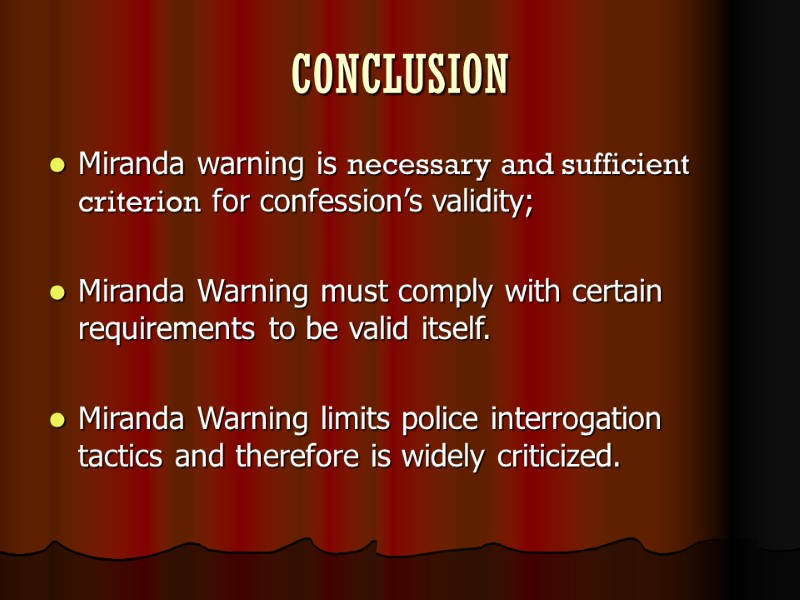
CONCLUSION Miranda warning is necessary and sufficient criterion for confession’s validity; Miranda Warning must comply with certain requirements to be valid itself. Miranda Warning limits police interrogation tactics and therefore is widely criticized.
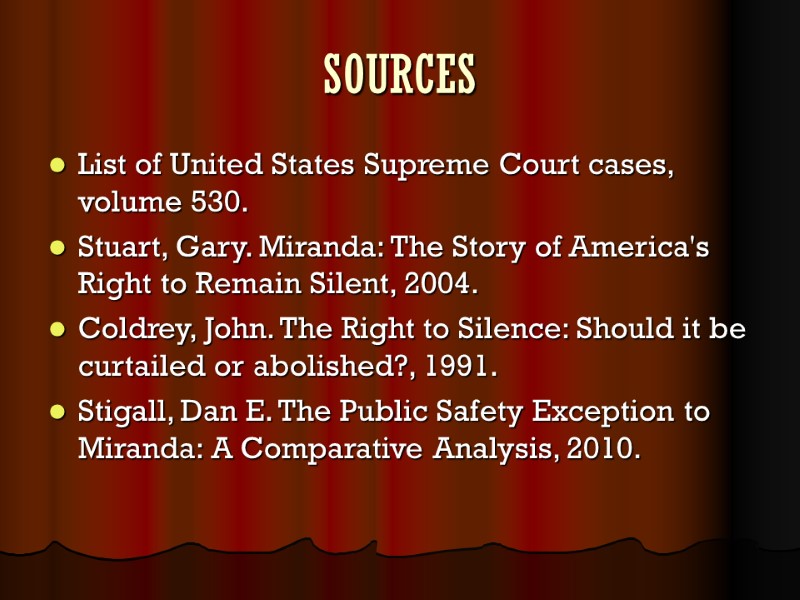
SOURCES List of United States Supreme Court cases, volume 530. Stuart, Gary. Miranda: The Story of America's Right to Remain Silent, 2004. Coldrey, John. The Right to Silence: Should it be curtailed or abolished?, 1991. Stigall, Dan E. The Public Safety Exception to Miranda: A Comparative Analysis, 2010.
1204-miranda_rights.ppt
- Количество слайдов: 13

